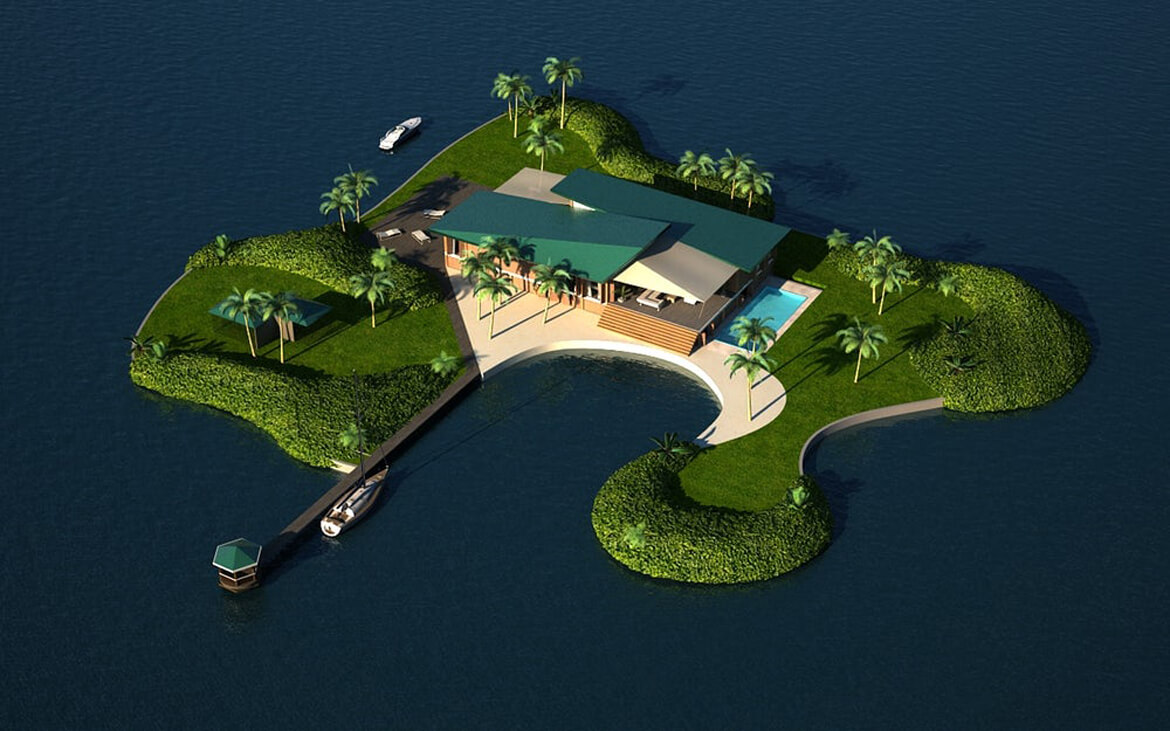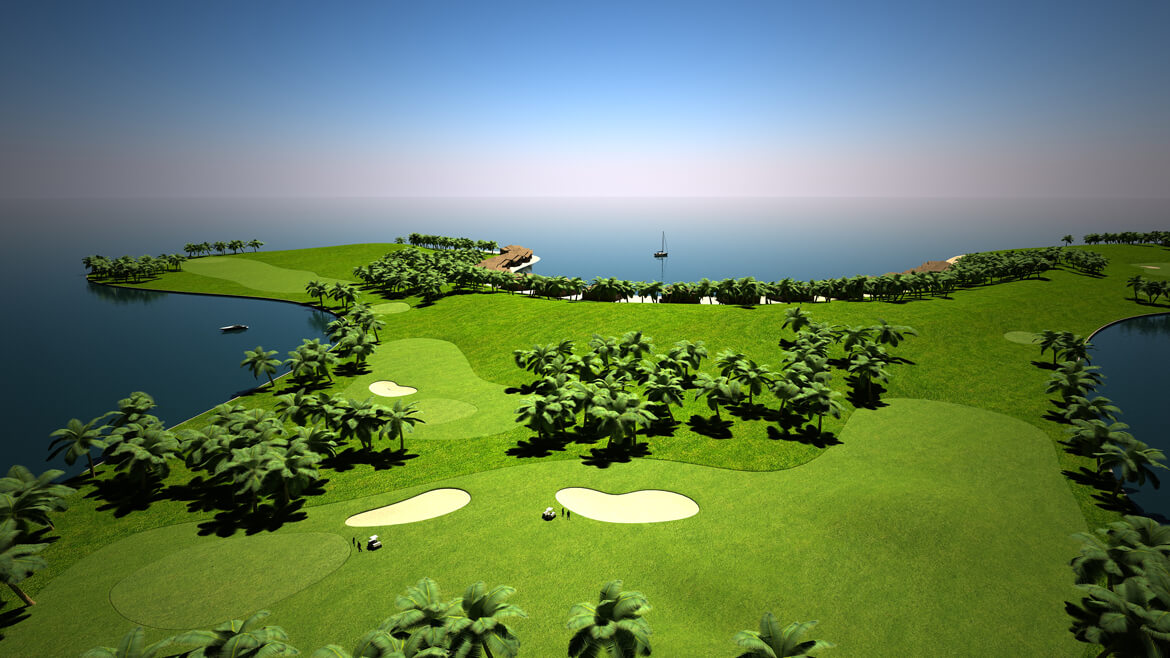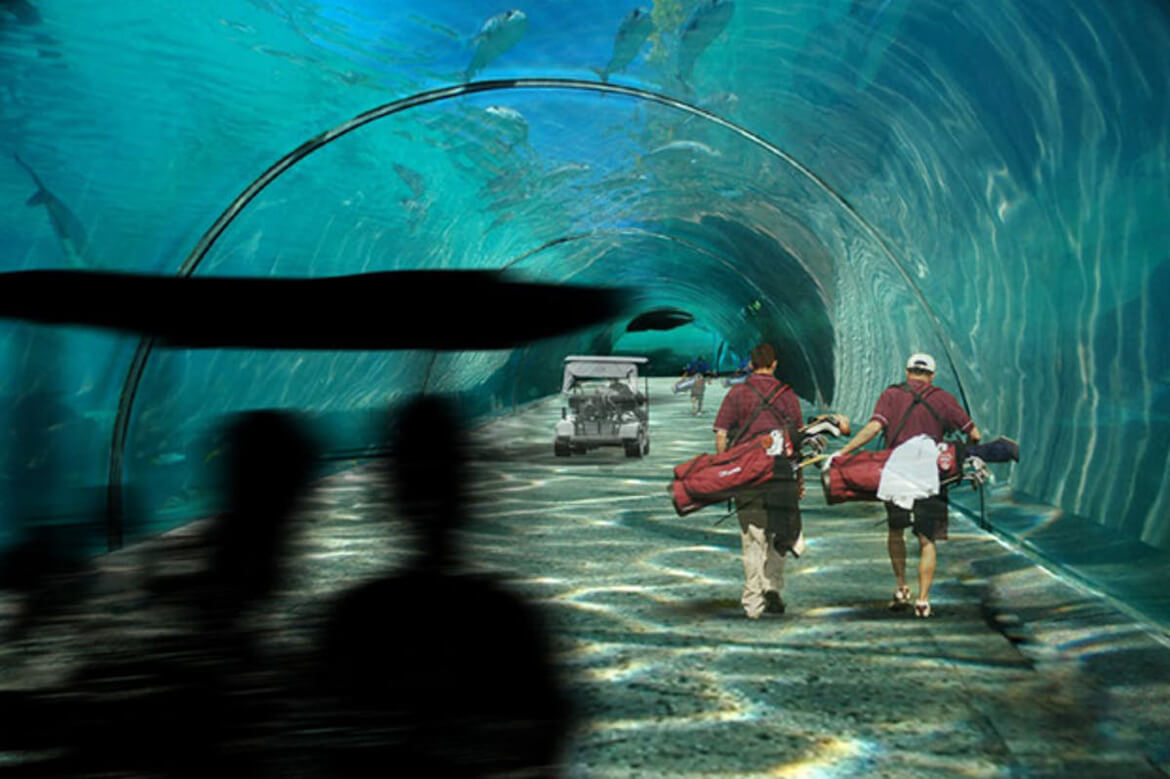
Dutch Docklands to the rescue for Dubai’s World project?



Gizmag, Bridget Borgobello, Nov 2011
The troubled World Project in Dubai, which has been riddled with problems since the global financial crisis in 2009 including rumors that the islands are sinking, may have found salvation. Architectural firm Dutch Docklands has developed, designed and engineered a master plan for 89 floating islands, giving current World investors the opportunity to purchase a floating paradise. The solution would provide investors with an option that’s more feasible and cost-effective than building on the existing land masses, whilst also incorporating several environmental benefits.
“Floating islands are environmentally friendly and leave a zero footprint after its lifespan, and opens opportunities where there is a scarcity of land,” Jasper Mulder, General Manager of Dutch Docklands Maldives told Gizmag. “They are the answer to urban limitations and climate change. It secures a safe and sustainable future where conventional building methods fail.”
The 89 floating islands proposed for the Middle East includes residential and commercial floating developments with a total surface area of 220,000 square meters (almost 2.4 million sq.ft). Dutch Docklands founders Paul Van de Camp and Koen Olthuis have developed technologies for developing floating constructions beyond the waterfront. “In Holland we have hundreds of years of experience of water management, many centuries of innovation to protect us from the water,” explained Mulder. “The vision of Dutch Docklands is to use this know-how in an offensive way by living with the water by way of floating developments. This new approach has automatically led to the first floating developments mainly built in the Netherlands.”
Dutch Docklands’ floating islands may be the preference for many World investors, as “serious talks are being held as we speak” said Mulder. However, the forward-thinking Dutch architects also have plans for the Maldives. A joint venture with the government of the Maldives has led to an ambitious master plan for more than 800 hectares (80 million sq.ft) of water, with floating construction currently in development.
The project hopes to see the completion of four individual ring-shaped floating islands, each with 72 water-villas; 43 floating private islands in an archipelago configuration; the world’s first floating 18-hole golf course; and, an 800-room floating hotel. Furthermore, the floating islands will be interconnected by underwater tunnels, and the golf course will feature an underwater clubhouse adjoining two luxury hotels.
The reality of floating islands could start to shape future urban landscapes, with further scope for agriculture, offices, housing and leisure. “This will lead to new economic opportunities where governments can cost-effectively lease islands with flexible solutions instead of investing in static developments,” concludes Mulder. It would also seem that Dutch Docklands could be the perfect candidates for Paypal founder Peter Thiel’s floating city challenge we covered a few months back!